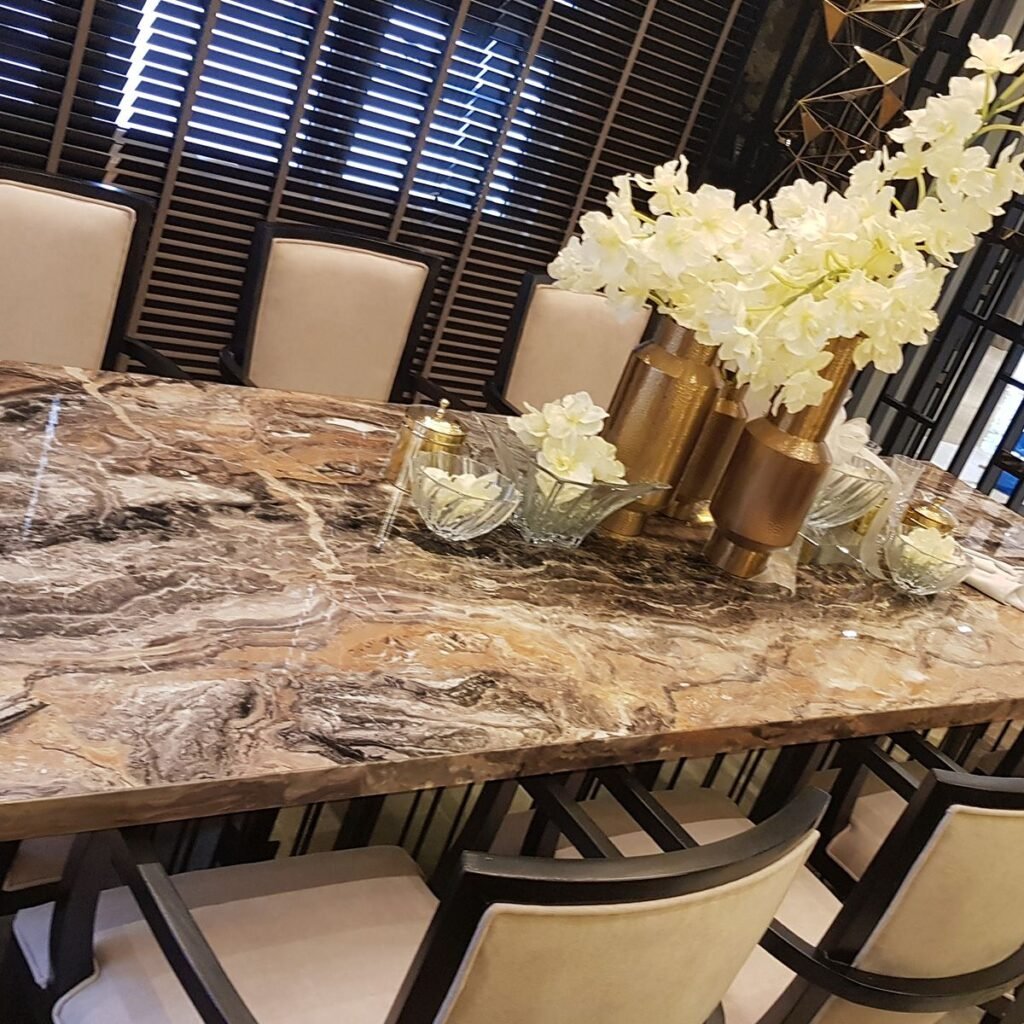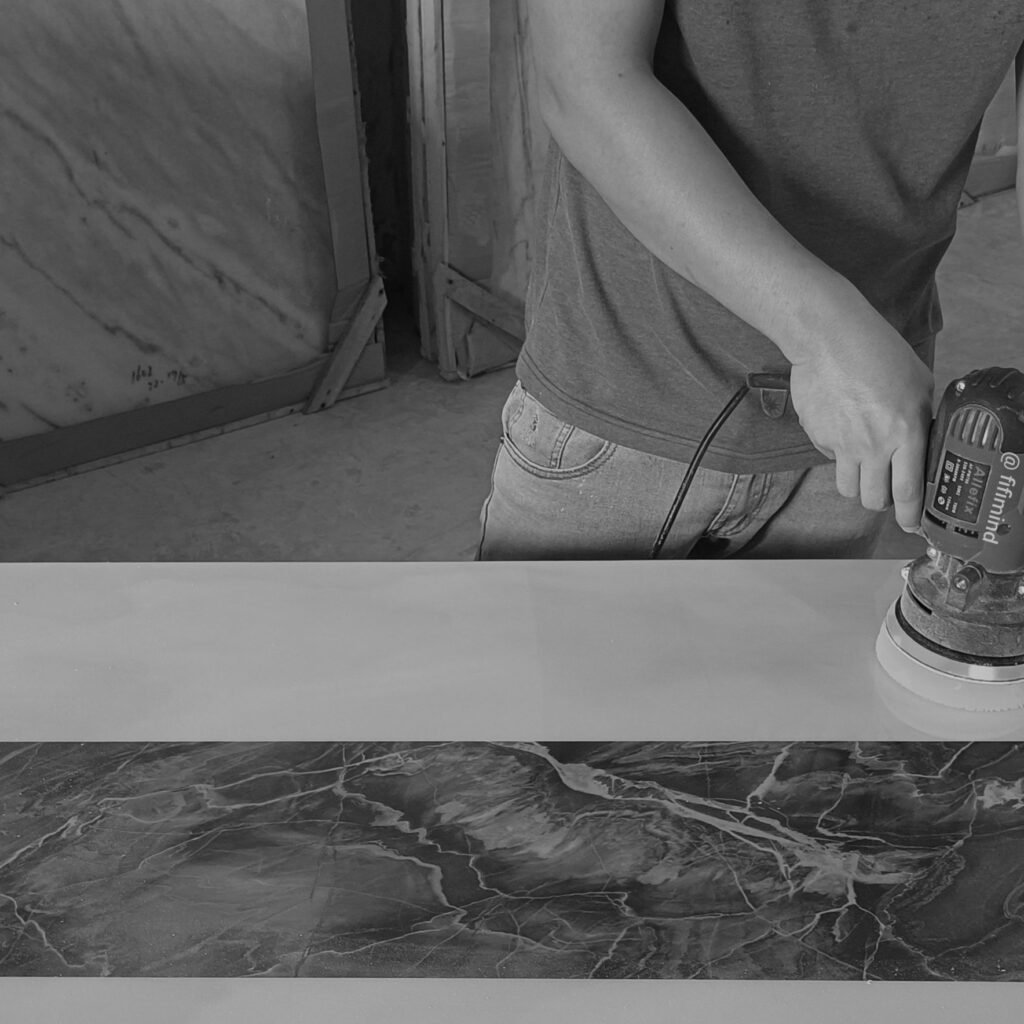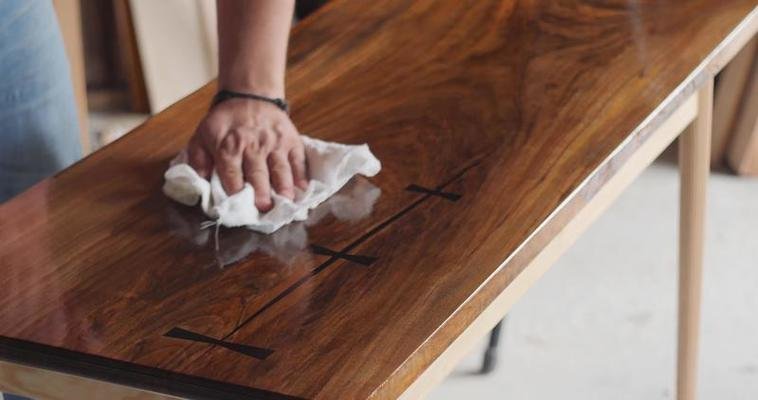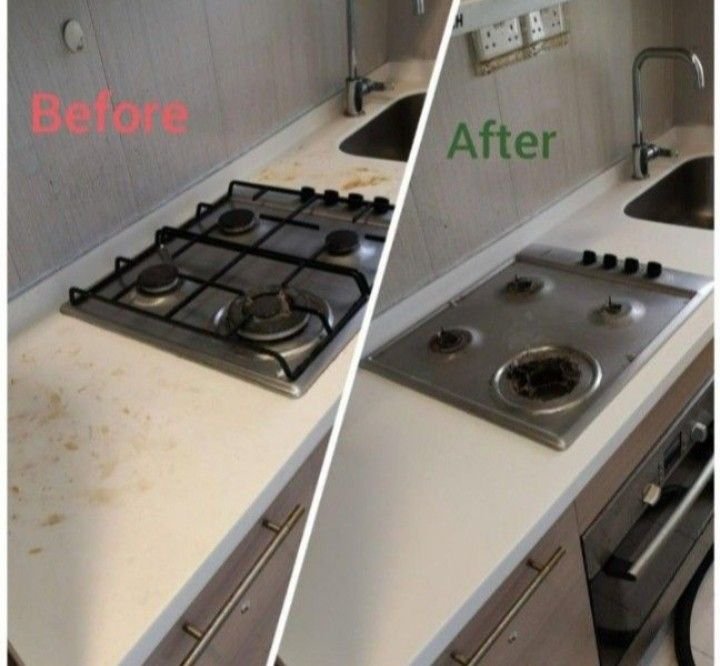Table Top Polishing

What is Tabletop Polishing?
The term tabletop refers to the flat surface of a table. Tabletop polishing is the process of restoring and enhancing the finish of a tabletop’s surface, making it smooth, glossy, and more resistant to scratches and stains. It aims to improve the appearance and protect the surface of a table. The process and specifics depend heavily on the material of the tabletop (wood, stone, metal or glass).It involves cleaning, sanding, applying finishing oils or waxes or more intensive processes depending on the material and its condition.
What is the process of polishing Tabletop?

The process varies drastically depending on the material:
- Wood: This usually involves sanding with progressively finer grit sandpaper, followed by the application of wood finish (oil, varnish, polyurethane, shellac, etc.). This might require multiple coats and sanding between coats for a smooth finish.
- Stone (marble, granite, etc.): This often requires professional equipment and expertise. It typically involves grinding, honing, and polishing using progressively finer diamond abrasives to remove scratches and imperfections and achieve a high gloss.
- Metal: Polishing metal tabletops might involve sanding with various grits of sandpaper, followed by buffing with polishing compounds to achieve a high shine. Specific compounds depend on the metal type.
- Glass: Glass tabletops generally require less intensive polishing. Cleaning with glass cleaner is usually sufficient; minor scratches might be polished out with a specialized glass polishing compound.
Why should we polish our tabletop periodically?
- Improved Appearance: Polishing restores the tabletop’s shine and luster, enhancing its beauty.
- Protection: A polished finish offers better protection against scratches, stains, and water damage.
- Hygiene: A polished surface is easier to clean and maintain, preventing the buildup of dirt and bacteria.
- Increased Value: For high-end furniture, regular polishing can help maintain or increase its value.

What are the concerns in polishing a tabletop?
- Damage: Incorrect techniques or abrasive materials can damage the tabletop’s surface, especially with delicate materials like wood or certain types of stone. Improper sanding can create unevenness or remove too much material.
- Safety: Using chemicals, sanding tools, and polishing compounds requires appropriate safety precautions. Proper ventilation is crucial when using solvents or dust-producing methods.
- Cost: Professional polishing services can be costly, particularly for intricate or large tabletops.
- Time: Polishing a tabletop can be a time-consuming process, especially for multiple coats of finish on wood.

Who Are We?
We have 10 years of experience specializing in the restoration and polishing of various tabletop materials. Our team is highly skilled in using appropriate techniques for wood, stone, metal, and glass, with quality equipment and environmentally friendly products. We’re committed to providing exceptional results while maintaining the highest safety standards.
Why Us?
Contact us now for our certified and expert specialists, by using high-quality materials, efficient time for work completion and transparent costing, our dedication to safety and our guarantee of customer satisfaction. We offer you a complete package from consultation until completion of work to give you a peace of mind.
What other Floor polishing services we can do ?
Other than tabletop polishing, we also provide other floor polishing for wood, parquet, marble, granite, vinyl and terrazzo. We also provide deep cleaning for tiles floor and carpet including floor rectification. Give us a call for the best and fast service.
